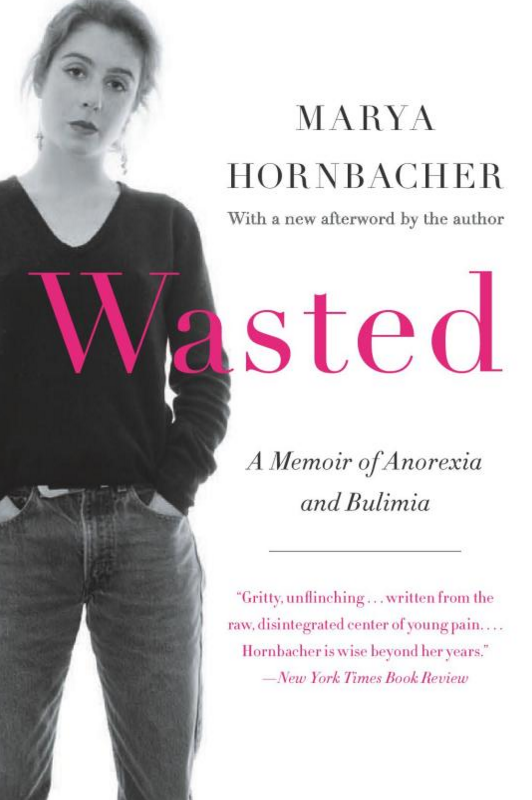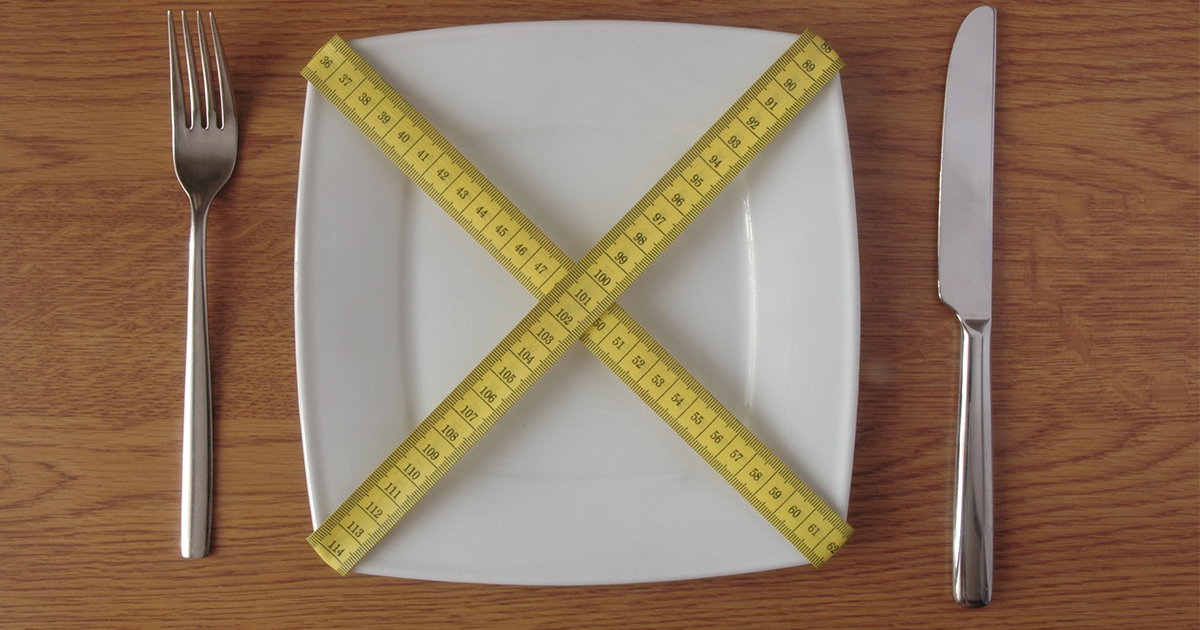An Eating Disorder Survivor Explains What Society Gets Wrong About the Disease

By:
Writer and journalist Marya Hornbacher is the author of "Wasted," a highly acclaimed memoir about struggling with eating disorders. When Hornbacher first published "Wasted" in the late 1990s, she agreed with the widespread notion that people have eating disorders for their entire lives.
However, in a new afterward for the book published in 2014, she said that she no longer believes this is true — at least for her.
Hornbacher, who battled eating disorders early in life and was told she wouldn't live beyond a week after hitting 52 pounds at age 18, thinks this attitude — that victims never fully recover from eating disorders — can be very discouraging and unhelpful to young people trying to recover from eating disorders. Each person's recovery is different.
 Amazon - amazon.com
Amazon - amazon.com
Hornbacher's memoir resonated with many after its initial and second release. Eating disorders have the highest mortality rate of any mental illness and impact up to 30 million people in the United States, according to the National Association of Anorexia Nervosa and Associated Disorders.
ATTN: had a chance to ask Hornbacher some questions about her recovery from eating disorders, what role social media and fashion play in eating disorders, and why many people view eating disorders as a personal choice rather than a mental illness. Here is what she had to say.
 AP/Berliner Verlag/Steinach - apimages.com
AP/Berliner Verlag/Steinach - apimages.com
Editor's note: This interview has been lightly edited for clarity.
ATTN: In the new afterward to your book, you take back your claim that a person with an eating disorder will never be able to escape it. What changed your view on that?
Marya Hornbacher (MH): I think what changed my stance on it was I recovered. I hope every author has the sense to look back on their previous works and go, "That was wrong." I feel lucky that I was given the opportunity to go back and go, "What I said there, I didn't know enough to make that claim."
I was A). too young B). not far enough into recovery, and C). told by so many people in the field that this "will always be with you to some extent." This is the standard line. I stopped buying it because I just had to get healthier. Not by magic, [but] by therapy, eating practices, health practices, family, supportive friends, and making different life choices. All of those things contributed to my recovery. The big piece that I realized was that recovery wasn't going to have very much to do with food or my body. It was going to be an entirely different area of healing that had to get addressed. But those first few years when you're going through recovery and dealing with food in your body and restoring your health, those are very uncomfortable years and I think a lot of people give up too soon. And I think a lot of people expect to be all better too soon and are impatient with themselves and the process.
When I kind of looked around one day and realized, "Holy shit I'm recovered," I wanted people to know that the line that "you're always going to deal with this" is self-fulfilling. If you say to yourself over and over, "I will always have this," well, then you believe this and you live it out. What I see is real progress is that people are starting to take their lives back and say, "Maybe somebody else didn't recover, [but] I'm going to recover. I'm going to do whatever it takes to get my life back." [And also] recognize that it's not about getting my body back. It's not about making my relationship with food perfect. It's about getting my life back.
Recovery is definitely possible and it's a lot more common than people think. When people are still saying [eating disorders last forever] to you when you hit 40, you're like, "I know." And then it's very hard to break away from it.
ATTN: Do you think the rise of social media has created a more vulnerable time for women who might be prone to eating disorders?
MH: Absolutely. It's very weird to say this, but as you know, that didn't exist when I wrote "Wasted." I did not know when "Wasted" came out, and I don't think anyone could have known, what social media was going to look like. I don't think we could have known how vulnerable people would become. I don't know that social media is solely responsible for this, but I don't think we knew how unquestioning people would become of media overtime and take things that they saw online as truth.
ATTN: It's just so different now because in addition to ads in magazines, we also have Instagram, Facebook, etc. Now people are comparing themselves to people who aren't even famous.
MH: Yeah. It's weird because it's a virtual comparison. We're essentially comparing ourselves to avatars. There is no reality. They're literally disembodied, [and we are] experiencing that envy of someone's body who we don't know. We don't know their body, we don't know their experience, we don't know anything about them. They just literally become a two-dimensional image that we try to measure up to or get away from.
ATTN: Do you have any insight into what role the fashion industry plays in eating disorders?
MH: I think what we see in fashion is that kind of fantasy land of what body is, and body in that case just becomes a form on which to hang clothes. A form on which to hang stuff that is essentially advertising a lifestyle. Then we associate the body with the lifestyle and the lifestyle with identity. By the time we get done reading an ad, we have totally changed our internal idea of what beauty is and who we are.
 Stocksy/Aleshyn_Andrei - stocksy.com
Stocksy/Aleshyn_Andrei - stocksy.com
ATTN: Why do you think so many people refuse to view eating disorders as a mental illness?
MH: For one thing, I think many people view mental illness in many cases as a choice. The book I'm working on right now is about mental illness recovery, and I have been stunned to find how antiquated and rudimentary people's understanding of what mental illness is at all. That perception isn't limited to eating disorders.
I myself certainly view eating disorders as a psychiatric disorder. But I also see them as an addiction, and people have that same perception about drug addicts. "If they would just get their shit together, they'd put the bottle down," and I think that [logic] is almost as anti-science as thinking the world was made 6,000 years ago because we know better than that. We know that addiction is founded in the brain. We know that the continuity and the perpetuation of addiction is founded in the brain and that you can't just go, "Oh, I think I'll stop this now." We give our conscious mind way more power than they have. We think that anything we want to do, we can just decide to do and that's it.
When we get into a place where we're ready and want to recover, it involves training at every level, not just the decision-making process. It involves really re-training our brain.
 Stocksy/Joselito Briones - stocksy.com
Stocksy/Joselito Briones - stocksy.com
ATTN: What kind of impact do eating disorders have on relationships?
MH: I think it's very hard on relationships for a couple of reasons. I think the big one is that your first love is the eating disorder, but that holds true for any addiction. Your first love is the bottle, your first love is the needle. When you're addicted, you are not fully present in any relationship. Not in family, not with friendship, not with work.
When you're addicted, the substance or the behavior is the one you're committed to. Even if you want desperately to get away from that, it's familiar. It's a lot more familiar than your relationship, and it's a lot more reliable. I think the mentality of people when they are addicted is that the world is untrustworthy and their addiction is stable.
For more information on eating disorders, watch ATTN:'s video below:
